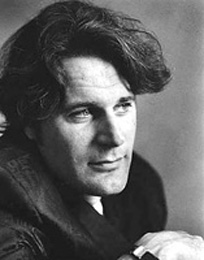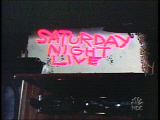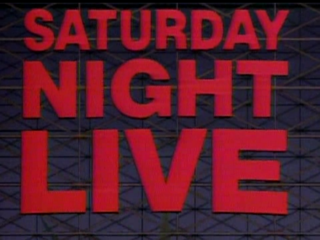
Charles Adams Claverie, known by stage names Charlie Hamburger, Charlie Kennedy and Charles Rocket, was an American actor, comedian, musician, and television news reporter. He was a cast member on Saturday Night Live, played the villain Nicholas Andre in the film Dumb and Dumber, and played Dave Dennison in Disney's Hocus Pocus.

Saturday Night Live is an American late-night live sketch comedy variety show created by Lorne Michaels and developed by Dick Ebersol that airs on NBC and streams on Peacock. Michaels currently serves as the program's showrunner. The show's premiere was hosted by George Carlin on NBC on October 11, 1975, under the original title NBC's Saturday Night. The show's comedy sketches, which often parody contemporary American culture and politics, are performed by a large and varying cast of repertory and newer cast members. Each episode is hosted by a celebrity guest, who usually delivers the opening monologue and performs in sketches with the cast, with featured performances by a musical guest. An episode normally begins with a cold open sketch that was usually based on political events and ends with someone breaking character and proclaiming, "Live from New York, it's Saturday Night!", properly beginning the show.
Jean Doumanian is an American stage, television and film producer.
Saturday Night Live is an American sketch comedy series created and produced by Lorne Michaels for most of the show's run. The show has aired on NBC since 1975.
Saturday Night Live is an American sketch comedy series created and produced by Lorne Michaels for most of the show's run. The show has aired on NBC since 1975.
Saturday Night Live is an American sketch comedy series created by Lorne Michaels, who also produced many episodes. The show has aired on NBC since 1975.
Gail Matthius is an American actress and comedian. She was a cast member of NBC's Saturday Night Live during its critical and ratings low point at the time, and co-anchored the Weekend Update segment with Charles Rocket in 1981.
Anna F. "Ann" Risley is a retired American actress and comedian. She was a cast member of the TV series Saturday Night Live for the 12 episodes of the 1980–1981 season. These 12 broadcasts were the first episodes after producer Lorne Michaels left the show.

Antonio Rosato was an Italian-Canadian actor and comedian, who appeared in television and films. He was best known as a cast member on both SCTV and Saturday Night Live, and for voicing Luigi in The Adventures of Super Mario Bros. 3 and Super Mario World.
Denise Dillon is an American actress and comedian best known for starring as Toby Pedalbee on the HBO comedy Dream On from 1990 to 1996. Dillon was first known for her stage work and was nominated for a Tony Award on Broadway. Other television credits include spending one season as a cast member on Saturday Night Live from 1980 to 1981 and co-starring on the Fox sitcom Women in Prison. She subsequently continued to act in theater and both teaches and performs improv comedy.

The thirty-third season of Saturday Night Live, an American sketch comedy series, originally aired in the United States on NBC between September 29, 2007, and May 17, 2008.

The eleventh season of Saturday Night Live, an American sketch comedy series, originally aired in the United States on NBC between November 9, 1985, and May 24, 1986.

The tenth season of Saturday Night Live, an American sketch comedy series, originally aired in the United States on NBC between October 6, 1984, and April 13, 1985. Only 17 episodes were produced due to a writers' strike and budget constraints.
The seventh season of Saturday Night Live, an American sketch comedy series, originally aired in the United States on NBC between October 3, 1981, and May 22, 1982.

The fifth season of Saturday Night Live, an American sketch comedy series, originally aired in the United States on NBC between October 13, 1979, and May 24, 1980.

The first season of Saturday Night Live, an American sketch comedy series, originally aired in the United States on NBC from October 11, 1975, to July 31, 1976. The show served as a vehicle that launched to stardom the careers of a number of major comedians and actors, including Chevy Chase, John Belushi, and Dan Aykroyd.
The following is a list of recurring Saturday Night Live characters and sketches introduced between November 15, 1980, and April 11, 1981, the sixth season of SNL.

"Saturday Night Live 40th Anniversary Special" is a three-and-a-half-hour prime-time special that aired on February 15, 2015, on NBC, celebrating Saturday Night Live's 40th year on the air, having premiered on October 11, 1975, under the original title NBC's Saturday Night. It is produced by Broadway Video. This special generated 23.1 million viewers, becoming NBC's most-watched prime-time, non-sports, entertainment telecast since the Friends series finale in 2004. It is the third such anniversary special to be broadcast, with celebratory episodes also held during the 15th and 25th seasons.
"A Limo for a Lame-O" is a commentary delivered by Al Franken during Weekend Update on the May 10, 1980, episode of Saturday Night Live (SNL). Using the framework of his own desire to have a limousine drive him to and from his job at NBC, the network which broadcasts the program, Franken attacked network president Fred Silverman for NBC's poor showing in the Nielsen ratings during his tenure. It has been called "one of the meanest acts of character assassination in—well, the history of mean acts of character assassination."









